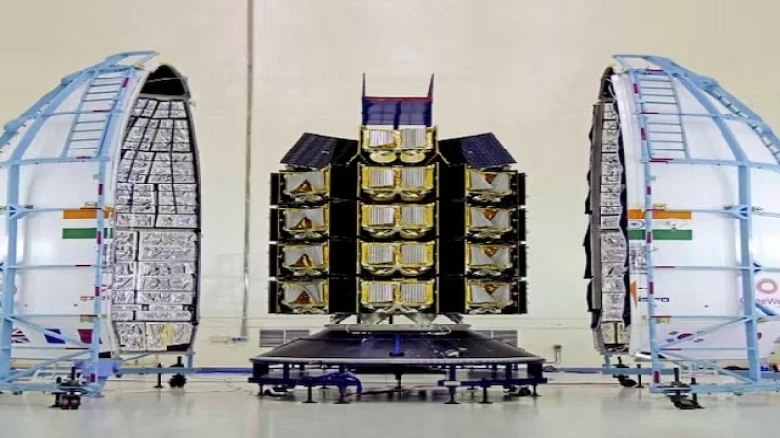Regional

The launch will carry 36 satellites from the OneWeb constellation to Low Earth Orbit, to complete the deployment of the UK-based company's Gen-1 network...
Digital Desk: The India Space Research Organization (ISRO) will launch the second batch of 36 OneWeb satellites into space on March 26. The internet constellation will be launched from Sriharikota onboard India's heaviest launch vehicle, the LVM-III.
The launch will carry 36 satellites from the OneWeb constellation to Low Earth Orbit, to complete the deployment of the UK-based company's Gen-1 network.
"This mission marks OneWeb’s second satellite deployment from India, highlighting the collaboration between the UK and Indian space industries," OneWeb tweeted.
Isro has redesignated the launch vehicle as LVM-3 from GSLV Mk-III. While changing the name of a launch vehicle is not unusual, it is new in India, and LVM-3 stands for Launch Vehicle Mark III.
The prime reason for changing the name of the rocket from GSLV to LVM is that it won't be used to launch satellites into geosynchronous orbit. The OneWeb satellites are in Low Earth Orbit (LEO) at an altitude of 1,200 kilometers.
The geosynchronous orbit, on the other hand, is 35,786 kilometers above the equator of the Earth.
This will be OneWeb's 18th launch, completing its first constellation around the Earth. The company recently completed its 17th launch to deploy 40 internet satellites onboard SpaceX's Falcon-9 rocket. The flight is scheduled to launch from Sriharikota at 9 a.m. on Sunday.
The British government-backed company cancelled a planned launch of 36 broadband satellites atop Russia's Soyuz rocket in March last year after Russia's space commander stopped the mission in the aftermath of Moscow's invasion of Ukraine.
Dmitry Rogozin stated at the time that his agency wanted OneWeb to provide assurances that its satellites would not be used against Russia.
The disagreement hampered OneWeb's plans to launch an initial constellation of 588 satellites to provide global broadband coverage, forcing the company to rapidly secure new rocket agreements with the Indian Space Research Organization and SpaceX.
Leave A Comment